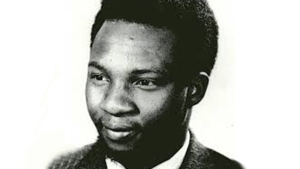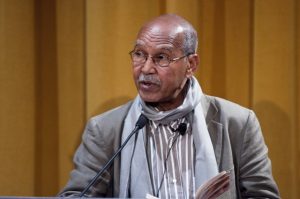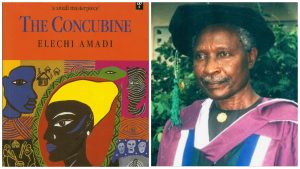Among the most powerful and revered writers in Africa is Nigerian dramatist, poet, essayist, and political activist Wole Soyinka. Soyinka, born in Abeokuta, Nigeria, on July 13, 1934, has spent decades creating a corpus of work on the complexity of African culture, politics, and identity. His contributions to literature and culture go well beyond the written word; they also include a lifetime of political activity, social justice, and preservation of African customs. As the first African to be bestowed with the esteemed Nobel Prize in Literature in 1986, Soyinka’s work has brought him many honors.
Early Life and Education
Born into a Yoruba family, Wole Soyinka’s upbringing in a cosmopolitan setting greatly shaped his work. Whereas his mother traded and was a devoted Christian, his father was an Anglican clergyman and headmaster. From early life, Soyinka was exposed to Western schooling in addition to traditional Yoruba culture. His writings, which often examine the conflict between African customs and Western influences, mirror this contradiction in his background.
Attending University College Ibadan, Soyinka studied English literature. Later on, he kept on his study at the University of Leeds in the United Kingdom, where he graduated with English. His intellectual path gave him a strong awareness of both African and Western literary traditions, which he deftly combined into his writings.
Literary Career and Best Work
Works ranging from plays to novels, poetry to essays define Wole Soyinka’s creative life. His works are distinguished by their intricacy and mixing of modern political and social concerns with Yoruba mythology, history, and culture. Because Soyinka’s writings often investigate issues of tyranny, persecution, and the fight for freedom, they are both timeless and generally applicable.
Among Soyinka’s many creations, his drama Death and the King’s Horseman (1975) is among his most important and well-received works. Based on a genuine historical incident in Nigeria, the drama chronicles Elesin, the king’s horseman, who is supposed to carry out ceremonial suicide once the monarch dies. But British colonial officials step in and stop him from performing his obligation, which has terrible consequences.
A great investigation of the conflict between Western colonization and traditional African beliefs is Death and the King’s Horseman. Soyinka explores the complexity of cultural clash and the terrible effects of colonialism on African communities in the drama. The drama explores personal obligations within their cultural setting in addition to a criticism of colonialism. A pillar of African literature and evidence of Soyinka’s creative brilliance, his deft use of language, symbolism, and dramatic structure in this book has made it indispensable.

Contribution to African Culture and Literature
The value Wole Soyinka has added to African literature and culture is unbounded. He has brought the richness of African oral traditions, ceremonies, and storytelling to the stage as a writer, therefore raising African theater to worldwide recognition. Often anchored in Yoruba mythology and cultural traditions, his plays operate as a link between Africa’s past and present, therefore safeguarding the continent’s legacy while tackling modern problems.
Works of Soyinka have also been very important in questioning and dissecting colonial stories. By means of his literature, he has recovered African history and identity from the distortions of colonialism. Readers and authors all throughout the continent have connected with his focus on the value of cultural authenticity and the necessity of Africans defining themselves on their own terms.
Apart from his creative successes, Soyinka has actively promoted social justice and human rights. Often at conflict with many Nigerian regimes, his advocacy has resulted in spells of exile and incarceration. Soyinka has persevered in his dedication to speaking truth to power and protecting the rights of the underprivileged in front of these difficulties. Generations of African authors and activists have been motivated to use their voices for change by his bravery and sincerity.
Beyond advocacy and writing, Soyinka has made major contributions to cultural preservation and education. Having established the Drama Association of Nigeria, he has participated in many projects meant to support African arts and culture. His attempts to protect and advance Yoruba traditional values have made sure these customs endure in the contemporary society.
Global Impact and Legacy
Wole Soyinka’s influence goes beyond Africa; his works have won respect and recognition outside. Celebrated as a worldwide literary icon whose works cut beyond national and cultural borders is he Readers all over may relate to his works as he can combine the local and the global, the past and the present.
With his Nobel Prize in Literature in 1986, Soyinka signaled to the world that African authors and tales merit a presence on the international scene, therefore transforming African literature. For other African authors, the acknowledgement also offered opportunities for the likes of Chinua Achebe, Ngugi wa Thiong’o, and Chimamanda Ngozi Adichie to get recognition elsewhere.
One of intellectual rigor, cultural pride, and relentless dedication to justice, Soyinka left behind Not just with his works but also with his activities as a public intellectual and activist, he has permanently changed the literary scene. Globally, his works are still studied and performed, motivating next generations of academics, authors, and activists to investigate the junctions of politics, culture, and identity.
Conclusion
The life and work of Wole Soyinka are evidence of the ability of literature to serve political activity, social criticism, and cultural preservation. Towering in African and worldwide literature, his great awareness of African culture and command of the written word have made him By means of works like as Death and the King’s Horseman, Soyinka has not only enhanced African literature but also advanced a more general awareness of the human situation.
The great and ongoing contributions Soyinka makes to African literature and culture include Using his platform, he has spoken for justice and human rights and given voice to the complexity of African identity in a post-colonial environment. Wole Soyinka is among the most revered literary icons in Africa; his works will inspire and affect next generations.
Please read all our stories on African Literature here



